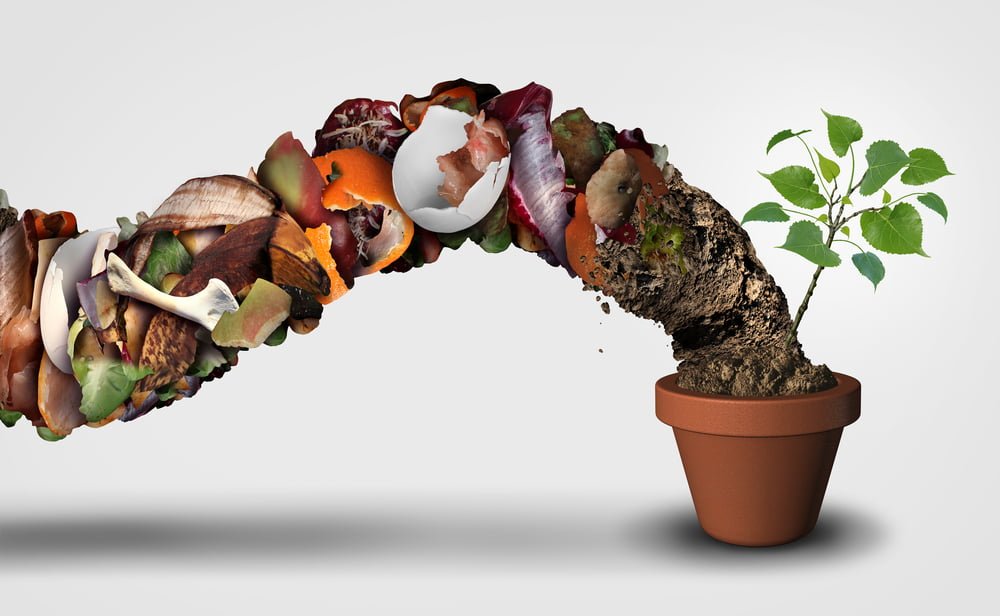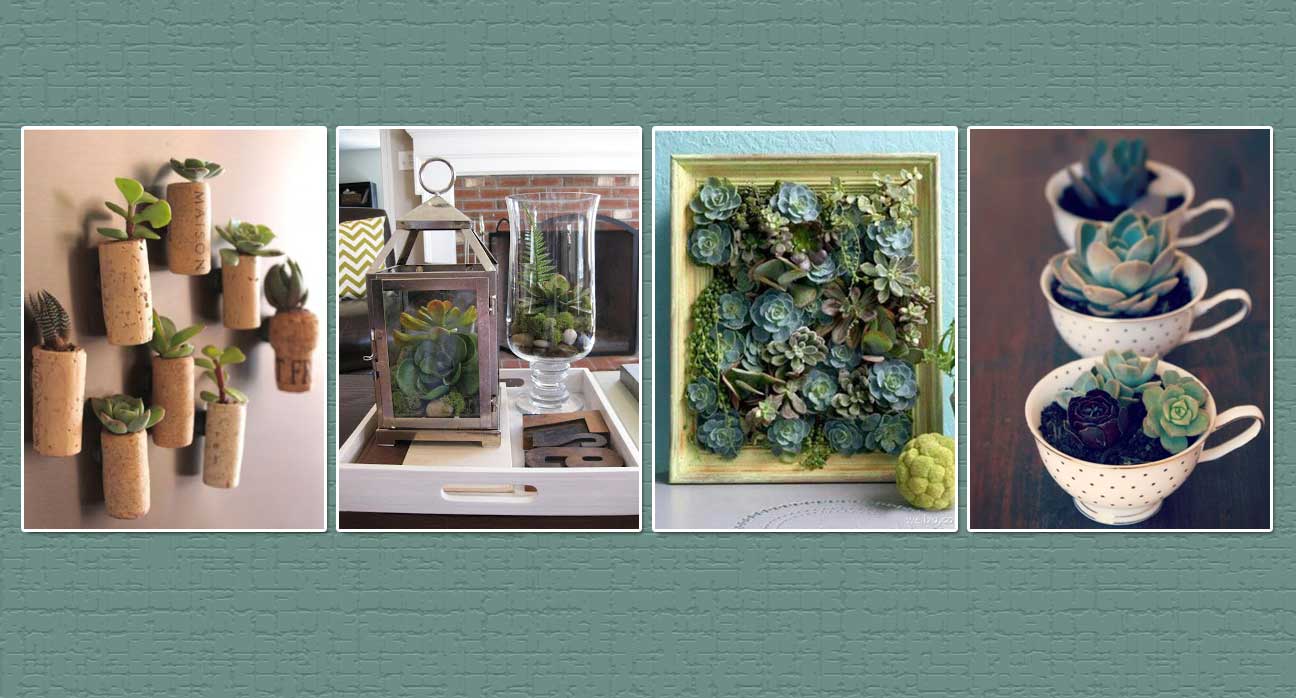Are you looking for an easy way to improve the health of your garden and help the environment at the same time? Composting could be just what you need!
It’s a simple, natural process that turns kitchen scraps and yard waste into nutrient-rich food for your plants. And guess what? It’s super safe and great for our planet too!
In this article, we’ll explore all the amazing benefits of composting – not only will it give your soil a boost, but it also helps reduce waste in landfills and lowers greenhouse gas emissions.
So whether you’re a seasoned gardener or new to growing plants, let’s dive into the world of composting together and discover how it can make our gardens (and Earth) healthier places to live!
The Science Behind Composting
Have you ever wondered what happens to all those fallen leaves and fruit peels that get mixed with the earth? Well, there’s a fascinating process called composting that plays a crucial role in keeping our soil healthy.
This natural phenomenon is like giving Mother Earth a warm hug by recycling organic waste into rich nutrients for plants. Let us delve deeper into how this amazing transformation takes place.
Composting is nature’s way of breaking down organic matter through the help of microorganisms, insects, and worms. When we pile up garden clippings, kitchen scraps, or dead leaves together, these tiny creatures work their magic by consuming them as food.
As they break down the material, they create heat which speeds up the decomposition process. The end result is a dark brown substance known as humus – not to be confused with your favorite chickpea dip!
Humus contains essential nutrients that enrich the soil and promote plant growth. The benefits of composting go beyond just healthier soil; it also contributes to environmental well-being.
By turning organic waste into valuable resources for our gardens and farms, we are reducing the amount of garbage sent to landfills. This means fewer greenhouse gas emissions from decomposing waste and more sustainable living practices overall.
So next time you toss those apple cores or wilted flowers into your backyard compost bin, remember that you’re playing an important part in supporting both soil health and a greener planet!
1. Enhances Soil Fertility
Now that we understand the science behind composting, let’s explore how this process can improve soil fertility. Healthy soil is essential for growing strong and nutritious crops, which in turn contributes to our well-being and safety. By adding compost to your garden or farm, you’ll be enhancing its fertility through a natural, sustainable method.
Composting provides numerous benefits for soil health:
- Increases organic matter content
- Improves nutrient availability
- Enhances water retention capabilities
- Supports beneficial microorganisms
These advantages lead to healthier plants with stronger root systems and higher resistance to pests and diseases. As a result, we rely less on synthetic fertilizers and harmful chemicals – ultimately protecting our environment and promoting safe food production practices.
So next time you toss your kitchen scraps into the compost bin or spread finished compost onto your garden beds, remember that it not only helps create rich, fertile soil but also contributes to a safer ecosystem where we can grow healthy food.
By embracing composting as part of our daily routines, we are taking an active role in preserving the earth’s valuable resources while ensuring our well-being.
2. Supports Microbial Life In Soil
One of the amazing benefits of composting is its ability to support a diverse and thriving community of microorganisms in the soil. These microscopic creatures, including bacteria, fungi, protozoa, and nematodes, play critical roles in maintaining soil health and fertility. By breaking down organic matter into nutrients that plants can easily absorb, these tiny helpers create an environment where plants can grow strong and healthy.
Here’s a quick comparison between non-composted soil and composted soil:
| Non-Composted Soil | Composted Soil |
|---|---|
| Limited microbial life | Rich in beneficial microbes |
| Nutrient deficiencies | Improved nutrient availability |
| Poor soil structure | Enhanced water retention & drainage |
Adding compost to your garden not only supports this vital ecosystem but also provides other important environmental benefits. For example, it helps reduce greenhouse gas emissions by storing carbon in the soil instead of releasing it into the atmosphere. Additionally, the use of compost reduces reliance on chemical fertilizers that may cause harm to both ecosystems and human health.
So next time you’re considering what to do with your kitchen scraps or yard waste, remember how valuable they can become when turned into compost! Not only will you be contributing to healthier soils teeming with microbial life but also taking part in safeguarding our planet for future generations. Remember: every little bit counts when it comes to creating a safer environment for ourselves and those who come after us.
3. Reduces Erosion And Soil Compaction
As we’ve seen, composting plays a crucial role in supporting the tiny organisms that make soil healthy and fertile. But the benefits of compost don’t stop there! Another significant advantage of incorporating compost into your gardening routine is its ability to reduce erosion and soil compaction.
This ensures that our precious topsoil stays where it belongs – nurturing plants and preserving natural habitats. Erosion occurs when wind, water, or other forces wear away at the earth’s surface, displacing vital topsoil. When this happens, essential nutrients are lost along with the soil particles, making it more challenging for plants to grow strong and healthy.
On the other hand, compacted soil restricts plant root growth by limiting access to oxygen and water necessary for proper development. Compost can help prevent both of these problems! By adding organic matter to the ground through composting, you’re creating a stable structure that holds together better against environmental threats while also improving drainage and aeration.
In addition to safeguarding our gardens from erosion and compaction dangers, using compost contributes positively to reducing greenhouse gas emissions as well. Instead of sending organic waste materials like food scraps or yard trimmings to landfills where they would break down anaerobically (without oxygen) producing methane – which has 28 times greater warming potential than carbon dioxide – we can recycle those resources back into nature via composting processes that release significantly less harmful gases into our atmosphere.
So not only does compost keep our soils safe and productive but also helps protect us all from climate change risks too!
4. Promotes Drought Resilience
Composting is a great way to improve water retention, decrease water usage, and enhance soil fertility.
It helps the soil absorb more water and makes it easier for plants to access it.
Compost also helps reduce water runoff, meaning less water is lost to evaporation.
Additionally, compost increases the fertility of the soil, providing essential nutrients for plants to thrive.
This helps crops become more drought-resistant and protect them from the effects of dry weather.
Lastly, composting can help reduce greenhouse gas emissions, making it beneficial for the environment.
Improving Water Retention
Imagine not having to worry about your plants and garden during a hot, dry summer. Well, compost can help with that! Composting is an amazing way to improve soil’s water retention capabilities, which means your plants will be better equipped to survive drought conditions.
This not only keeps your garden looking great but also helps conserve valuable water resources. When you add compost to the soil, it increases its ability to hold onto water like a sponge. The organic matter in compost acts like tiny reservoirs that store moisture for when your plants need it most.
Research shows that just a 1% increase in organic matter can help the soil retain up to 20,000 gallons of additional water per acre! That’s a lot less watering you’ll have to do and fewer worries about keeping your plants healthy through those long dry spells.
Not only does improved water retention keep our gardens thriving during droughts, but it also benefits the environment as a whole. With more efficient use of water resources, we reduce runoff and erosion issues that often result from excess irrigation or heavy rainfall events.
Plus, healthier soils promote stronger root systems in our plants, making them more resilient against pests and diseases. So next time you’re tending to your garden or lawn, remember that adding some compost could make all the difference in creating a landscape ready to handle whatever Mother Nature throws at us!
Decreasing Water Usage
By decreasing water usage, we’re not only helping our gardens thrive during dry periods but also contributing to the overall well-being of the environment.
When we use compost in our soil, it allows us to cut back on how much water we need for irrigation since it’s already being held within the organic matter. This means that there’s less demand for our precious water resources and more available for other important uses.
We can all feel a bit safer knowing that by using compost and reducing water consumption, we’re playing an active role in preserving vital resources for future generations.
Plus, with healthier plants and stronger root systems, our gardens will be better prepared to face any challenges that may come their way – whether it’s drought or pesky pests trying to munch away at our hard work!
So go ahead and give your garden some love by incorporating compost into your soil; you’ll be doing both your plants and Mother Earth a huge favor.
And remember every little bit counts when it comes to conserving water and promoting drought resilience in our landscapes. With each small step we take toward responsible gardening practices like adding compost, we create a ripple effect that ultimately makes a significant impact on creating a greener world for everyone to enjoy.
Enhancing Soil Fertility
As we continue our journey towards promoting drought resilience, let’s not forget about another crucial benefit of using compost in our gardens: enhancing soil fertility.
You see when you add compost to your soil, you’re feeding it with essential nutrients that plants need to grow strong and healthy. And guess what? Healthier plants are more resistant to drought and other harsh conditions!
By enriching the soil with organic matter from compost, we can improve its structure and ability to hold onto those much-needed nutrients. This means that even during dry spells, our precious plants will still have access to the vital nutrients they require for optimal growth.
So don’t be shy – get out there and start spreading some compost love around your garden! Remember, by taking care of the earth beneath our feet, we’re creating a safer haven for our beloved plants as well as ourselves.
Together, we can make a difference in building a greener future for all living things on this planet. Just imagine how amazing it would feel knowing that every time you step outside into your flourishing garden oasis, you’ve played an active role in fostering a healthier environment simply by incorporating compost into your gardening routine!
5. Suppresses Plant Diseases And Pests
Suppressing plant diseases and pests is another significant benefit of composting for soil health and the environment. When we compost, we’re not only recycling organic materials but also creating an ideal habitat for beneficial microorganisms. These helpful little creatures play a crucial role in keeping harmful pathogens and unwanted insects at bay.
Here are three ways that compost helps suppress plant diseases and pests:
- Boosts Beneficial Microorganisms: Compost is teeming with millions of good bacteria, fungi, and other microscopic life forms. They compete with disease-causing organisms for nutrients and space, often out-competing them and reducing their numbers.
- Improves Soil Structure: Healthy soil structure allows water to drain properly, preventing overwatered conditions which can lead to root rot or fungal infections. Better soil structure also means improved air circulation around plant roots, making it harder for certain pests to thrive.
- Provides Essential Nutrients: Compost enriches the soil with essential nutrients like nitrogen, phosphorus, potassium, calcium, magnesium, sulfur, and boron – the list goes on! This means plants grown in compost-amended soils are healthier overall and better equipped to resist pest attacks or recover from disease damage.
So next time you think about tossing your food scraps into the trash or letting those leaves pile up in your yard – stop! Consider starting a compost bin instead. Not only will you be contributing positively to the environment by reducing waste in landfills; but you’ll also be giving your garden a fighting chance against pesky invaders while improving its overall health.
Remember: healthy soil leads to healthy plants – which ultimately translates to a safer environment for all living things!
6. Encourages Plant Growth And Yield
Imagine a gardener, tending to their flourishing garden with care and dedication. Each plant stands tall and strong, representing the hard work put into maintaining its health. This successful growth can be attributed to composting – an essential practice that not only benefits the soil but also encourages plant development.
Composting is like providing your plants with a delicious meal full of nutrients they need to grow healthy and robust. When organic matter breaks down in the compost pile, it creates humus, which is rich in nutrients such as nitrogen, phosphorus, and potassium. These are vital elements for proper plant growth and increased crop yield.
With more nutritious food available for absorption through their roots, plants become stronger, less susceptible to diseases or pests, and produce higher-quality fruits or vegetables.
By incorporating compost into our gardens, we’re taking steps towards healthier plants and greater harvests while benefiting Mother Earth simultaneously. The positive impact on both soil life and overall environmental sustainability makes this simple act of recycling organic waste invaluable for those who wish to nurture their green spaces safely.
So go ahead – give your plants the nourishment they deserve by embracing the art of composting!
7. Minimizes Waste In Landfills
Composting is an excellent way to reduce waste in landfills. When we throw away food scraps, yard waste, and other organic materials, they end up taking up precious space in our already overcrowded landfills. Not only does this contribute to the depletion of valuable resources like land and water, but it also produces harmful greenhouse gases as these materials decompose without oxygen.
By composting at home or participating in a community compost program, you can help minimize landfill waste while creating nutrient-rich soil for your garden.
There are several ways that minimizing waste in landfills can make us feel safer and protect our environment:
- Reducing methane emissions: Landfills are significant contributors to methane gas production, a potent greenhouse gas contributing to climate change. Composting prevents these emissions by allowing organic matter to decompose aerobically (with oxygen), producing carbon dioxide instead – a less harmful gas.
- Conserving natural resources: Using homemade compost reduces the need for chemical fertilizers and pesticides, leading to healthier ecosystems with cleaner air, water, and soil.
- Supporting local food systems: Composting encourages sustainable gardening practices such as growing your own fruits and vegetables or supporting local farmers who use organic methods.
So what’s stopping you from joining the fight against overflowing landfills? It doesn’t take much effort on our part; simply collect kitchen scraps like fruit peels or coffee grounds along with yard trimmings like leaves and grass clippings into a designated bin or pile outdoors where nature will do its magic!
In just a few months’ time, you’ll have nutrient-dense compost ready for use in your garden beds – giving back to both the earth and yourself through healthy plants that provide delicious food for you and your family. As more people embrace composting as an essential practice for reducing landfill waste and promoting environmental health, we all get closer to achieving a greener world where safety becomes second nature!
8. Lowers Greenhouse Gas Emissions
As we triumphantly wage the battle against waste in landfills, another powerful ally emerges from the depths of decomposing organic matter: composting.
This miraculous process not only reduces landfill waste but also plays a vital role in lowering greenhouse gas emissions that threaten our planet’s safety and future.
Imagine this – you’ve just discovered a secret weapon capable of capturing harmful gases right out of thin air! Sounds like something straight out of a superhero movie, doesn’t it? Well, believe it or not, compost has got your back when it comes to fighting climate change.
When food scraps and other organic materials are allowed to break down in landfills, they release methane – an extremely potent greenhouse gas. However, by redirecting these materials into compost heaps instead, we can significantly cut down on methane production while generating nutrient-rich soil amendments that improve soil health.
So next time you toss those fruit peels and veggie scraps into the compost bin, remember that you’re playing an important role in protecting our environment. You may not be wearing a cape or have superpowers (that we know of), but every little bit helps keep our world safe and thriving for generations to come.
By embracing composting practices at home and supporting community efforts, together we can create positive change for our planet’s atmosphere while nurturing healthy soils teeming with life.
9. Helps Saves Money On Fertilizers And Soil Amendments
One of the fantastic benefits of composting is that it can help you save money on fertilizers and soil amendments. How, you ask? Well, when you make your own compost at home using kitchen scraps and yard waste, you’re essentially creating a nutrient-rich organic material that will work wonders for improving your garden’s soil health. This means you won’t have to spend as much on store-bought fertilizers or other pricey soil enhancements.
Here are some ways in which making your own compost saves you money:
- Using food scraps:
- Instead of throwing away vegetable peels, fruit rinds, coffee grounds, and eggshells, these items can be added to your compost pile.
- You’ll be reducing the amount of trash sent to landfills while recycling valuable nutrients back into your garden.
- Yard waste:
- Fallen leaves, grass clippings, and small branches can also contribute to your homemade compost mix.
- These materials are often available for free in most yards and gardens – no need to buy expensive bagged products.
By investing time in creating rich compost from readily available resources like kitchen scraps and yard waste, not only do we reduce our expenses but also promote a safer environment for ourselves and future generations. By avoiding harmful chemicals present in many commercial fertilizers and opting for natural solutions like compost instead, we ensure healthier plants without causing damage to the surrounding ecosystem.
So go ahead – give composting a try! Your wallet (and the planet) will thank you!
Educating Communities On Sustainable Practices
As luck would have it, not only does composting help you save money on fertilizers and soil amendments, but it also contributes to a broader positive impact – educating communities on sustainable practices.
By adopting the art of composting in our daily lives, we can become role models for others around us and inspire them to follow suit.
Teaching people about the benefits of composting is an effective way to promote environmental stewardship within local communities. When individuals learn how this simple practice can reduce waste, improve soil health, and support plant growth, they are more likely to feel empowered to make a difference themselves.
Organizing workshops or community events centered around composting education can create opportunities for neighbors to come together, share knowledge, and build networks that foster environmentally-conscious habits.
Spreading awareness about sustainable practices like composting helps create safer environments for everyone by promoting healthy ecosystems and reducing pollution caused by chemical fertilizers. As more people get involved in these eco-friendly activities, we contribute collectively towards building stronger communities that prioritize the well-being of both humans and nature alike.
So let’s start today; grab your kitchen scraps and join the movement towards greener living!
Setting Up Your Own Composting System
Now that you’re aware of the benefits of composting, you might be wondering how to set up your own system at home. It’s easier than you think! With just a few simple steps, you can create a thriving compost pile and contribute positively to soil health and the environment.
To start your compost journey, follow these three basic steps:
- Choose a location: Find a spot in your yard or garden where you can dedicate space for your compost. Make sure it’s easily accessible and has good drainage.
- Collect materials: Gather various organic materials such as kitchen scraps (fruits, vegetables), leaves, grass clippings, and small branches. Remember to avoid meats, dairy products, and oily foods which could attract pests or cause odors.
- Layer and maintain: Start by placing twigs or straw on the bottom for airflow. Then add alternating layers of brown (carbon-rich) and green (nitrogen-rich) materials until your pile reaches about 3 feet high. Turning the pile occasionally helps oxygenate it and speeds up decomposition.
You don’t need any fancy equipment or special skills to successfully manage a compost pile – just some patience and dedication will do the trick! As time goes on, watch as your waste turns into rich humus that nourishes plants while keeping our planet healthy.
So go ahead – give composting a try today! You’ll feel great knowing that not only are you improving your own little corner of the world but also making an impact globally by protecting our precious soil resources for future generations to come.
Some Frequently Asked Questions
How Do Different Types Of Composting Methods (E.G., Aerobic Vs. Anaerobic) Affect The Quality Of The Compost Produced And Its Benefits For Soil Health And The Environment?
Different composting methods, like aerobic and anaerobic, can affect the quality of the compost produced and its benefits for soil health and the environment.
Aerobic composting uses oxygen to break down organic materials faster, resulting in a nutrient-rich final product that’s great for improving soil structure and providing essential nutrients to plants.
On the other hand, anaerobic composting doesn’t require oxygen but takes longer to decompose waste material.
While it also produces valuable nutrients, this method may produce an unpleasant smell and greenhouse gases during decomposition.
By choosing the right composting method, you’re not only making your garden healthier but also contributing to a safer and cleaner environment!
Are There Any Safety Concerns Or Precautions To Consider When Handling Compost, Particularly When Using It In A Home Garden Setting?
Don’t let the fear of dirt hold you back from reaping the rewards of composting in your home garden!
When handling compost, it’s essential to keep a few safety precautions in mind. Make sure to wear gloves and wash your hands thoroughly after working with compost to prevent any potential skin irritation or infection. Additionally, avoid inhaling dust particles by dampening the compost before turning or disturbing it.
Finally, never use fresh manure for your vegetable gardens as it can harbor harmful pathogens; instead, opt for well-aged or fully decomposed manure-based compost.
By following these simple guidelines, you’ll be on track to safely enhance your soil health while contributing positively to our environment.
Can Composting Be Effectively Implemented In Urban Environments, Such As In Apartment Buildings Or Community Gardens, And What Challenges Might Arise In These Settings?
Absolutely! Composting can be effectively implemented in urban environments like apartment buildings or community gardens, but there may be some challenges to overcome.
One major hurdle is space constraints, as not all city dwellers have access to outdoor areas for traditional compost piles or bins. However, innovative solutions such as indoor worm composting systems (vermicomposting) and electric composters can help address this issue.
Additionally, organizing a community-wide effort might require cooperation from neighbors and local authorities to establish shared composting sites or programs.
Keep in mind that maintaining cleanliness and odor control is crucial in these settings to ensure everyone’s comfort and safety while reaping the benefits of eco-friendly waste management practices.
How Can Businesses, Particularly Those In The Food And Agriculture Industries, Benefit From Implementing Composting Programs And Contribute To Overall Environmental Sustainability?
Oh, the joy of sending piles of food waste to landfills and letting it rot there for eternity! But wait – businesses in the food and agriculture industries can do better by implementing composting programs.
Not only will these eco-superstars get a gold star for being environmentally friendly, but they’ll also see benefits like reduced waste disposal costs and improved soil health on their own properties.
By turning those pesky leftovers into nutrient-rich compost instead of methane-producing landfill fodder, companies can contribute to overall environmental sustainability while keeping Mother Earth happy (and probably even earn some brownie points from customers too).
So let’s ditch that stinky trash heap idea and embrace the wonderful world of composting; after all, safety-conscious folks love knowing we’re taking care of our planet!
Are There Any Potential Negative Impacts Or Drawbacks To Composting, And How Can These Be Mitigated To Ensure The Best Possible Outcomes For Soil Health And The Environment?
While composting offers numerous benefits for soil health and the environment, there can be some potential drawbacks if not done correctly.
Issues like unpleasant odors, pests, and greenhouse gas emissions might arise from improper compost management.
But don’t worry! You can easily overcome these challenges by maintaining a proper balance of ‘green’ (nitrogen-rich) and ‘brown’ (carbon-rich) materials in your compost pile, turning it regularly to provide adequate oxygen, and keeping food scraps covered to deter pests.
By following these simple steps, you’ll ensure that your composting efforts contribute positively to both soil health and our planet’s well-being.
Conclusion
In conclusion, composting is an excellent way to improve soil health and help our environment. By exploring different methods and taking necessary precautions, we can make the most of this valuable resource in various settings such as home gardens, urban areas, and businesses.
However, it’s essential to be aware of potential drawbacks and challenges that may arise with composting.
Let’s continue investigating and learning about composting practices so we can contribute positively to our planet’s well-being while enjoying healthier soils for our plants!









